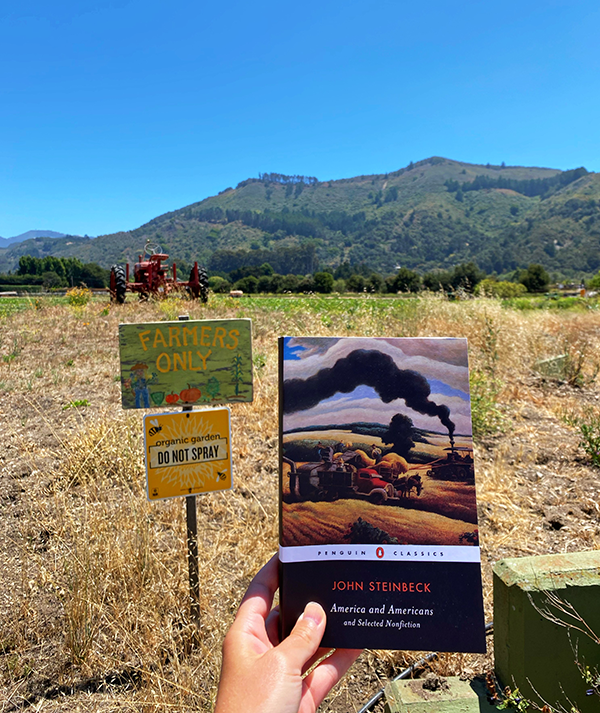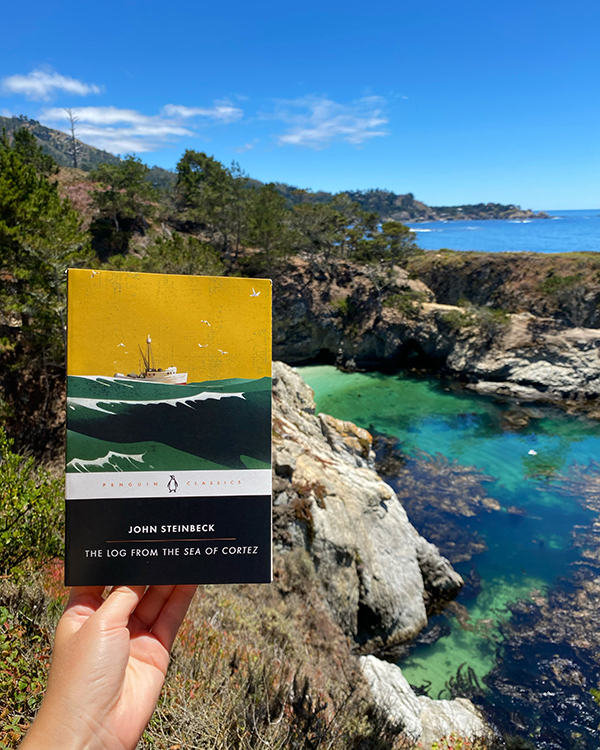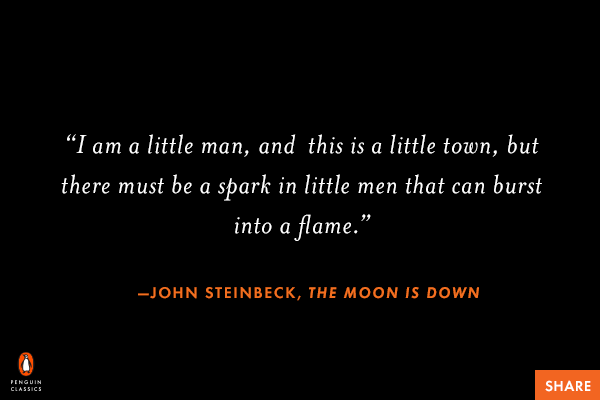
Because what you read matters.
Subscribe to the Penguin Classics Newsletter here.
ICYMI: We spent the summer revisiting John Steinbeck’s timeless (and timely) words in the beautiful corner of Central California he called home and wrote about so lovingly and wisely. Here are some of our favorite bits of wisdom from and about his beloved works that we’re carrying with us into the new season and beyond. Let us know on social media what you’ve discovered on your own travels with Steinbeck (we’re @PenguinClassics everywhere).

“I have often wondered at the savagery and thoughtlessness with which our early settlers approached this rich continent. . . . This tendency toward irresponsibility persists in very many of us today; our rivers are poisoned by reckless dumping of sewage and toxic industrial wastes, the air of our cities is filthy and dangerous to breathe from the belching of uncontrolled products from combustion of coal, coke, oil, and gasoline. Our towns are girdled with wreckage and the debris of our toys—our automobiles and our packaged pleasures. Through uninhibited spraying against one enemy we have destroyed the natural balances our survival requires. All these evils can and must be overcome if America and Americans are to survive; but many of us still conduct ourselves as our ancestors did, stealing from the future for our clear and present profit.” —from “Americans and the Land” (1966), found in America and Americans and Selected Nonfiction

“We read Sea of Cortez for its own sake as a first-rate work of travel literature. We read it also to understand the range and depth of Ricketts’s impact on Steinbeck’s fiction. And this permits us to see Steinbeck’s fictional accomplishments in a new and fresh light. . . . We see also that his thinking is not worn and obsolete, but is as current as the modern environmental movement, which it predates and with which it has so much in common. If we read and consider Sea of Cortez in all its complexity, we see John Steinbeck fusing science and philosophy, art and ethics by combining the compelling if complex metaphysics of Ed Ricketts with his own commitment to social action by a species for whom he never gave up hope, and whom he believed could and would triumph over the tragic miracle of its own consciousness.” —from Richard Astro’s introduction to The Log from the Sea of Cortez

“John Steinbeck’s reputation as a writer does not rest primarily on Pastures, but it is a major work of American fiction, and it was pivotal in his career. In it he discovered the central subject of his greatest work, the simple people of the Salinas Valley, struggling against the odds, against economic deprivation and the legacy of a past that threatens to overwhelm them, ideas that inform The Grapes of Wrath and East of Eden. His Naturalistic use of characters who are psychologically deformed, or obsessed, or driven by a curse, he was to use again and again, most brilliantly in Of Mice and Men and In Dubious Battle. . . . Perhaps it is not too much to claim that the central components of the greatness of Steinbeck’s work, his basic style and subject and fundamental themes, have their origin not in his most celebrated novels but in an often ignored collection of stories that appeared, unceremoniously, in 1932, The Pastures of Heaven.” —from James Nagel’s introduction to The Pastures of Heaven

“Steinbeck wrote [The Moon Is Down] in the dark days of 1941, as Europe descended into war, propelled by Germany’s destructive march across the continent. It was Steinbeck’s attempt to puncture the myth that the German war machine was invincible, to warn Europeans and Americans against succumbing to counsels of despair, to call for the international community to do more to aid the resistance fighters in Europe’s conquered lands and, above all else, to celebrate and defend democracy. . . . Overwhelmed by the bravery of people who ‘refused to admit defeat even when Germans patrolled their streets,’ John Steinbeck wrote The Moon Is Down as a message of defiance, as a tribute to the durability of the democratic spirit and as a charge not to succumb to feelings of despair, apathy or helplessness.” —Charles Edel, from “President Zelensky’s leadership of Ukraine’s resistance is a testament to democracy” in The Washington Post






